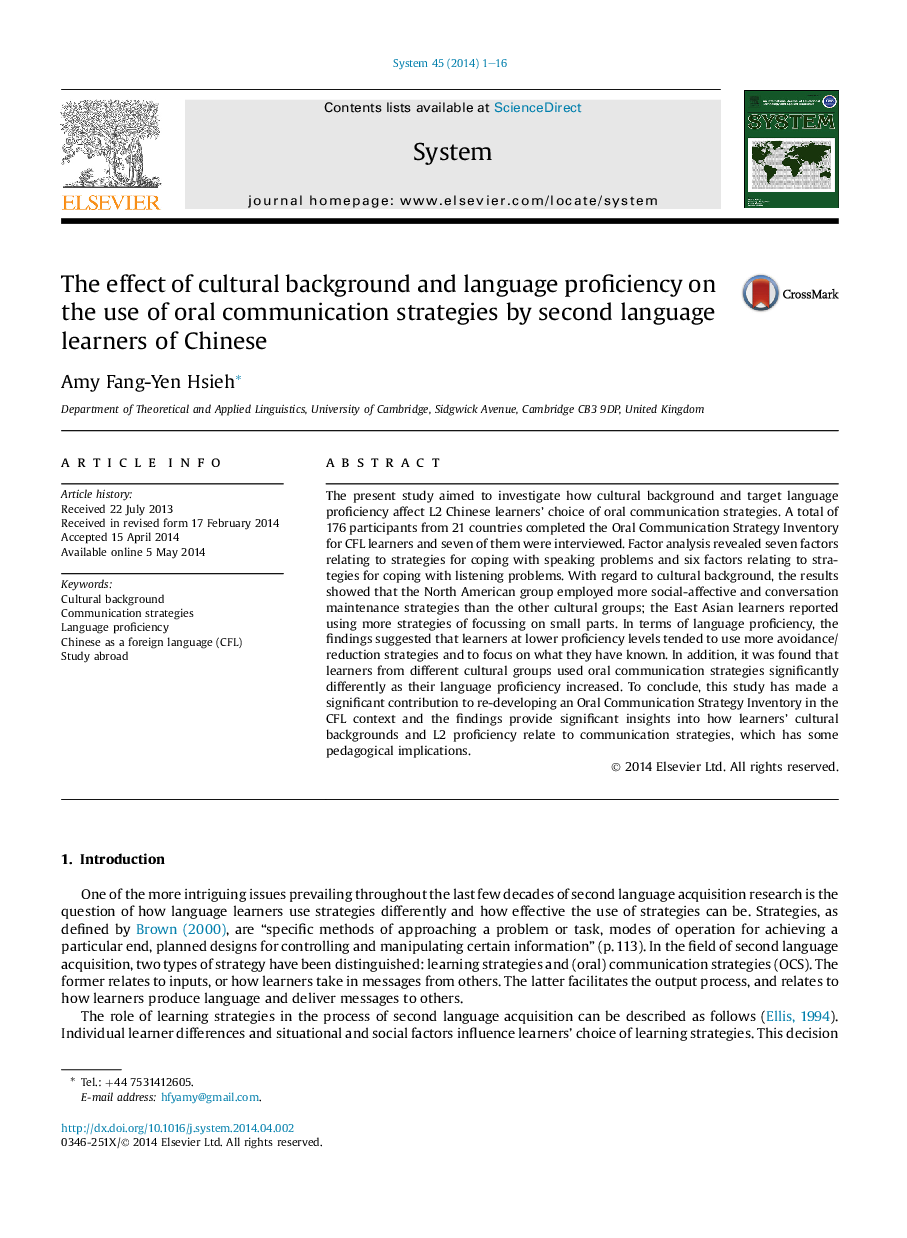| کد مقاله | کد نشریه | سال انتشار | مقاله انگلیسی | نسخه تمام متن |
|---|---|---|---|---|
| 373329 | 622299 | 2014 | 16 صفحه PDF | دانلود رایگان |
The present study aimed to investigate how cultural background and target language proficiency affect L2 Chinese learners' choice of oral communication strategies. A total of 176 participants from 21 countries completed the Oral Communication Strategy Inventory for CFL learners and seven of them were interviewed. Factor analysis revealed seven factors relating to strategies for coping with speaking problems and six factors relating to strategies for coping with listening problems. With regard to cultural background, the results showed that the North American group employed more social-affective and conversation maintenance strategies than the other cultural groups; the East Asian learners reported using more strategies of focussing on small parts. In terms of language proficiency, the findings suggested that learners at lower proficiency levels tended to use more avoidance/reduction strategies and to focus on what they have known. In addition, it was found that learners from different cultural groups used oral communication strategies significantly differently as their language proficiency increased. To conclude, this study has made a significant contribution to re-developing an Oral Communication Strategy Inventory in the CFL context and the findings provide significant insights into how learners' cultural backgrounds and L2 proficiency relate to communication strategies, which has some pedagogical implications.
Journal: System - Volume 45, August 2014, Pages 1–16
